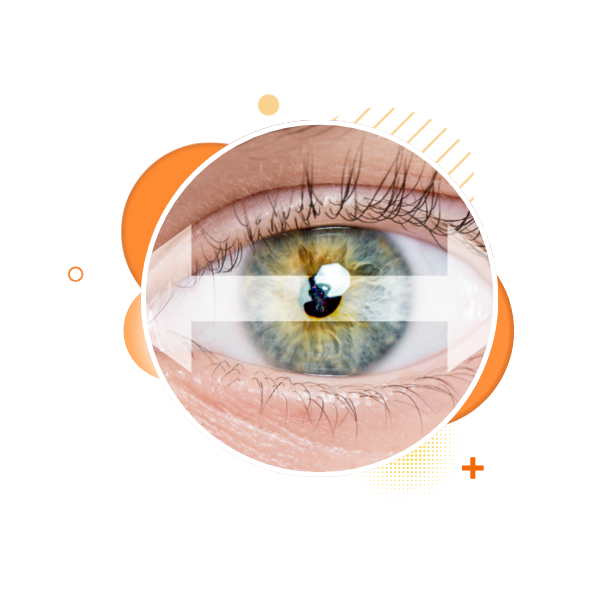Isha Netralaya | Best Eye Hospital in Maharashtra | Eye Specialist
Nystagmus
Understanding About Nystagmus
Nystagmus is a vision condition characterized by involuntary, rapid, and repetitive movements of the eyes. These movements can be side-to-side (horizontal nystagmus), up and down (vertical nystagmus), or in a circular motion (rotary nystagmus). This condition can affect balance and coordination, making it difficult to focus clearly on objects. Nystagmus can be congenital (present at birth) or acquired later in life due to neurological or eye issues, injury, or disease.

Types of Nystagmus :
Present at birth or develops in infancy, this type is often linked to genetic or developmental conditions and usually doesn’t worsen over time.
This type develops later in life and may be caused by trauma, neurological disorders, certain medications, or inner ear problems.
This occurs only when one eye is covered, and it’s often associated with congenital forms.
A rare form that occurs in infants and usually resolves on its own by age 2 or 3.
Symptoms:
The primary symptom is the uncontrollable, rhythmic movement of the eyes, which may be slow or fast.
Constant movement can cause difficulty focusing, leading to blurred or shaky vision.
Individuals with nystagmus may find bright lights uncomfortable.
People with nystagmus often tilt or turn their heads to reduce the intensity of the eye movement and improve their focus.
Nystagmus can impair the ability to judge distances, making activities like walking or reaching for objects more challenging.
Treatment:
Corrective lenses may improve vision in some cases, although they do not cure nystagmus.
Eye exercises can help strengthen eye muscles and reduce some symptoms of nystagmus.
Certain drugs, such as muscle relaxants or medications for neurological disorders, can help manage symptoms.
In severe cases, surgery on the eye muscles can be performed to reduce the intensity of the movements and improve head posture.
Precautions:
Routine eye exams are essential for monitoring vision changes and managing the condition.
Wearing sunglasses or using tinted lenses can help reduce light sensitivity.
Adequate indoor lighting can make it easier to focus on tasks and reduce eye strain.
Magnifying glasses or other low-vision aids can help with reading and other tasks that require focusing.
Identifying and avoiding certain triggers, such as stress or specific medications, can help manage acquired nystagmus.
Before Surgery
Before considering surgery for nystagmus, your doctor will conduct a thorough eye examination and discuss the potential benefits and risks. Surgery typically focuses on adjusting the position of the eye muscles to improve the range of clear vision and head posture. Before the procedure, you may need to stop certain medications, and the doctor will explain how the surgery might impact your vision and eye movement. You will be advised to arrange transportation home after the procedure, as your vision might be affected.
During Surgery
Nystagmus surgery is aimed at reducing the abnormal eye movements and improving head positioning. The procedure involves repositioning or adjusting the muscles around the eyes to create a more stable gaze. It is typically performed under general anesthesia, meaning you will be asleep during the surgery. The surgeon makes small incisions in the muscles controlling the eyes to adjust their tension, which can help lessen the frequency and intensity of the eye movements. The surgery typically lasts 1 to 2 hours. After the procedure, your eyes may feel sore or irritated, and vision might be blurry for a short time as you recover.
After Surgery
After surgery, your eyes will likely feel uncomfortable or sore, and vision may be blurry for a few days. You will be prescribed eye drops or medications to reduce inflammation and prevent infection. It’s important to avoid strenuous activities, rubbing your eyes, and exposing your eyes to bright light. Follow-up visits with your doctor will be necessary to monitor healing and determine the effectiveness of the surgery. Full recovery usually takes a few weeks, and while the surgery can help reduce symptoms, it may not completely eliminate the eye movements.
Isha Netralaya
As one of the leading eye hospitals in the heart of Thane, we take pride in our expertise in treating a varied range of eye problems.

LASIK Surgery
LASIK Surgery In Maharashtra

RETINA
RETINA Surgery In Maharashtra

CATARACT
Robotic Cataract Surgery

SQUINT
Specializes in Pediatric Squint

OCULOPLASTY
Best Oculoplastic surgeons in Thane

CORNEA
Advances Cornea Treatments in Thane

PEDIATRIC
Best Pediatric Ophthalmology Hospital

GLAUCOMA
Glaucoma Treatment In Maharashtra
Nystagmus FAQs
There is no complete cure for nystagmus, but treatments like glasses, surgery, and vision therapy can help reduce symptoms and improve quality of life.
Nystagmus can be caused by genetic factors, neurological conditions, inner ear problems, or trauma. In some cases, the exact cause is unknown.
Yes, nystagmus typically affects both eyes, although the intensity may vary between them.
While nystagmus itself is not life-threatening, it can be associated with underlying neurological or eye conditions that require medical attention.
Congenital nystagmus usually remains stable over time, but acquired nystagmus can worsen depending on the underlying cause.




